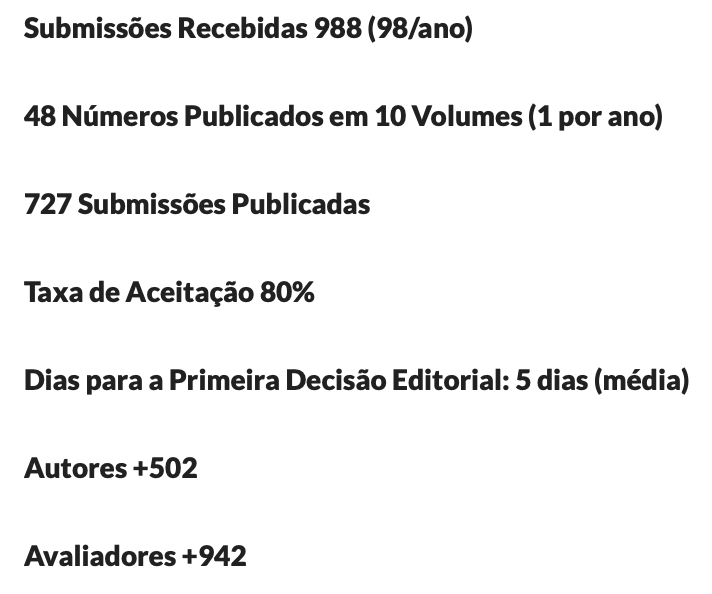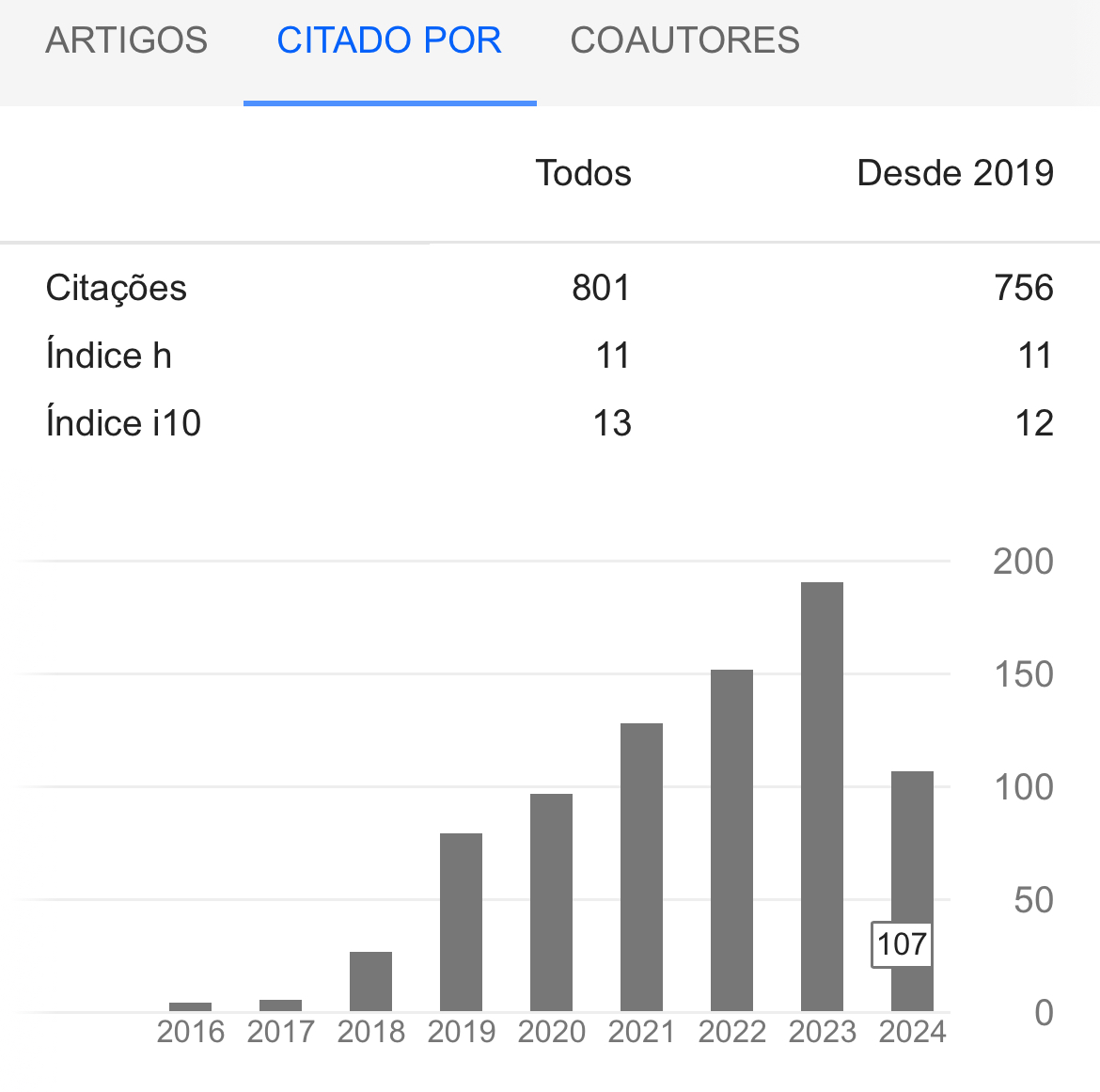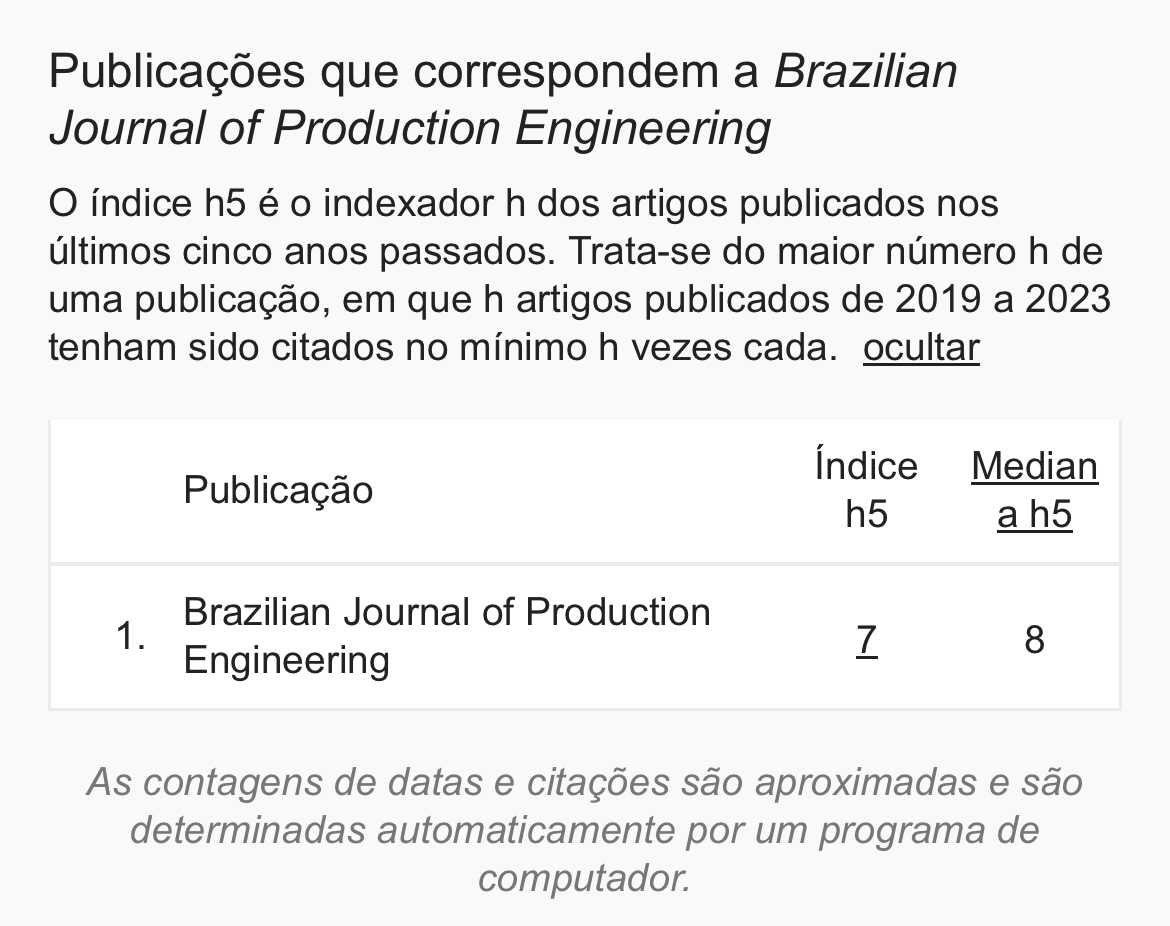Location of paper sorting center for schools in Vila Mariana, São Paulo
DOI:
https://doi.org/10.47456/bjpe.v6i7.33014Keywords:
Sorting Center, Reverse logistic, Paper, Urban solid wasteAbstract
The citizen's profile has changed in relation to the impacts caused by high consumption and the incorrect disposal generated by its waste; As a result, citizens have continuously sought solutions that minimize the impacts of their actions. Thus, the present study aimed to identify the best location for the installation of the Sorting Center link for the reverse logistics of paper chips generated in schools in the Vila Mariana neighborhood, taking into account the decision variables. Through the chosen methodology, the following specific objectives were defined: mapping schools in the Vila Mariana neighborhood, in the city of São Paulo; identify the decision variables that influence and should be taken into account to determine the estimates; evaluate the installation of a Sorting Center to serve the region using a location model, center of gravity. Considering the method chosen, schools in the region were mapped, making it possible to define the best location for the Sorting Center, as well as to evaluate its installation according to the criteria of volume of paper chips generated by the mapped schools, cost of transporting the waste from schools to the Sorting Center and the distance between schools and the Sorting Center.
Downloads
References
ABRELPE (2016). Resíduos Sólidos Urbanos: Panorama dos resíduos sólidos no Brasil. Disponível: http://www.abrelpe.org.br/Panorama/panorama2016.pdf. Acesso: 24 abr. 2018.
Bowersox, D. J., & Closs, D. J. (2001). Logística empresarial: o processo de integração da cadeia de suprimento. São Paulo: Atlas.
Brasil (2010). Lei nº12.305, de 2 de agosto de 2010, que institui a Política Nacional de Resíduos Sólidos. Disponível: http://www.planalto.gov.br/ccivil_03/_ato2007-2010/2010/lei/l12305.htm#:~:text=LEI%20N%C2%BA%2012.305%2C%20DE%202%20DE%20AGOSTO%20DE%202010.&text=Institui%20a%20Pol%C3%ADtica%20Nacional%20de,1998%3B%20e%20d%C3%A1%20outras%20provid%C3%AAncias.&text=Art.&text=%C2%A7%202o%20Esta%20Lei,s%C3%A3o%20regulados%20por%20legisla%C3%A7%C3%A3o%20espec%C3%ADfica Acesso em: 28 out. 2020.
Brasil (2018). Mercado financeiro prevê inflação em 4,23% em 2018, 2018. Disponível: http://www.brasil.gov.br/noticias/economia-e- financas/2018/11/mercado-financeiro-preve-inflacao-em-4-23-em-2018 Acesso: 20 nov. 2018.
Brasil (2017). Inflação termina 2016 no menor nível em três anos. Disponível: http://www.brasil.gov.br/economia-e-emprego/2017/01/inflacao-termina-2016-no-menor-nivel-em-tres-anos-1 Acesso: 20 nov. 2018.
CEMPRE (2017). Pesquisa Ciclosoft 2016, Disponível: http://cempre.org.br/ciclosoft/id/8 Acesso: 21 out. 2020.
INEP (2018). Censo Escolar, 2018. Disponível: http://portal.inep.gov.br/web/guest/resultados-e-resumos Acesso: 10 Ago. 2018
Dornier, P. P. et al., (2000) Logística e Operações Globais. São Paulo: Atlas.
Ferri, G. L., Chaves, G. L. D., & Ribeiro, G. M (2014). Análise e localização de centros de armazenamento e triagem de resíduos sólidos urbanos para a rede de logística reversa: um estudo de caso no município de São Mateus, ES. Production, 25(1), 27-42. DOI: 10.1590/s0103-65132014005000014.
Ferri, G. L. et al., (2017). Models for localizing facilities in solid waste management: a bibliometric review. Brazilian Journal of Production Engineering, 3, p. 40-56.
Fornazari, A. C., et al., (2019) Evaluation of the structure of the tire network reverse logistics: a case study. Iberoamerican journal of project management, 10, p. 1, 2019.
Gonçalves, M. F. S., Leite, A. C., & Shimada, R. D. (2018) Avaliação da estrutura da logística reversa do óleo residual de cozinha (ORC) em São Paulo. Revista Gestão Industrial, 14, p. 1.
Galbiati A. F. (2012) O Gerenciamento Integrado de Resíduos Sólidos e a Reciclagem. Disponível em: <http://web-resol.org/textos/97.pdf>. Acesso em: 6 Out 2020
Jacobi P. R., & Besen G.R. (2011) Gestão de resíduos sólidos em São Paulo: desafios da sustentabilidade. Estudos Avançados, 25(71). DOI: 10.1590/S0103-40142011000100010
Macedo, A. R. P., & Valença, A. C. V. (1995) BNDES Setorial. Reciclagem de papel. Rio de Janeiro, 2, p. [4]-22.
Machado, G. C., Feres, P. P., & Gonçalves, M. F. S. (2019) Reverse logistics: feasibility analysis of the collection and restitution of lubricating oil used or contaminated. Journal of Engineering and Technology for Industrial Applications, 5, p. 1. DOI: 10.5935/2447-0228.20190009
Maps. (2018) Google maps. Disponível: https://www.google.com.br/maps Acesso: 15 jul. 2018.
Martins, P. G., & Laugeni, F. P. (2015) Administração da Produção. 3. ed. São Paulo: Saraiva.
Oliveira L. R., et al., (2012) Sustentabilidade: da evolução dos conceitos à implementação como estratégia nas organizações. Production, Niterói, 22(1), 70-82. DOI: 10.1590/S0103-65132011005000062
Rogers, D. S., & Tibben-Lembke, R. S. (2001) An examination on reverse logistics practices. Journal of Business Logistics. 22(2),129-148. 10.1002/j.2158-1592.2001.tb00007.x
São Paulo (2018) Cadastro de Escolas. 2018. Disponível: http://www.educacao.sp.gov.br/central-de-atendimento/downloads.asp. Acesso: 15 jul. 2018.
Sato, F. R. L. (2002) Problemas e métodos decisórios de localização de empresas. RAE Eletrônica, São Paulo, 1(2), 6-8.
Servare Junior, M. W. J., et al., (2018) Mathematical model for supply chain design with time postponement. Transportes, Rio de Janeiro, 6(4), 1-15. DOI: 10.14295/transportes.v26i4.1324
Servare Junior, M. W. J., & Cardoso, P. A. (2020) Modelo matemático para postergação de tempo no projeto de rede logística reversa com níveis de capacidade. Brazilian Journal of Production Engineering, 6(7), 01-22. DOI: 10.47456/bjpe.v6i7.32475
Servare Junior, M. W. J., et al., (2020) A Linear Relaxation-Based Heuristic for Iron Ore Stockyard Energy Planning. Energies, Basel, 13(19). DOI: 10.3390/en13195232
Silva, J. A. da. (2003). Direito ambiental constitucional. 4a. Ed. São Paulo: Malheiros.
Trevisan, C. E., Xavier, W. S., & Gonçalves, M. F. S. (2019) Roteirização de caminho ótimo para coleta seletiva de embalagens cartonadas na região central da cidade de Embu das Artes – SP. Revista Brasileira De Gestão Ambiental, 13, p. 13-23.
Slack, N. et al. (2015) Administração da produção, 4ª. Ed, São Paulo: Atlas.
Viola, E. J. (1987). O movimento Ecológico no Brasil (1974-1986): do ambientalismo à ecopolítica. Disponível: http://www.anpocs.org.br/portal/publicacoes/rbcs_00_03/rbcs03_01.htm Acesso: 27 agosto 2018.
Downloads
Published
How to Cite
Issue
Section
License
Copyright (c) 2020 Brazilian Journal of Production Engineering - BJPE

This work is licensed under a Creative Commons Attribution-NonCommercial-ShareAlike 4.0 International License.











































































